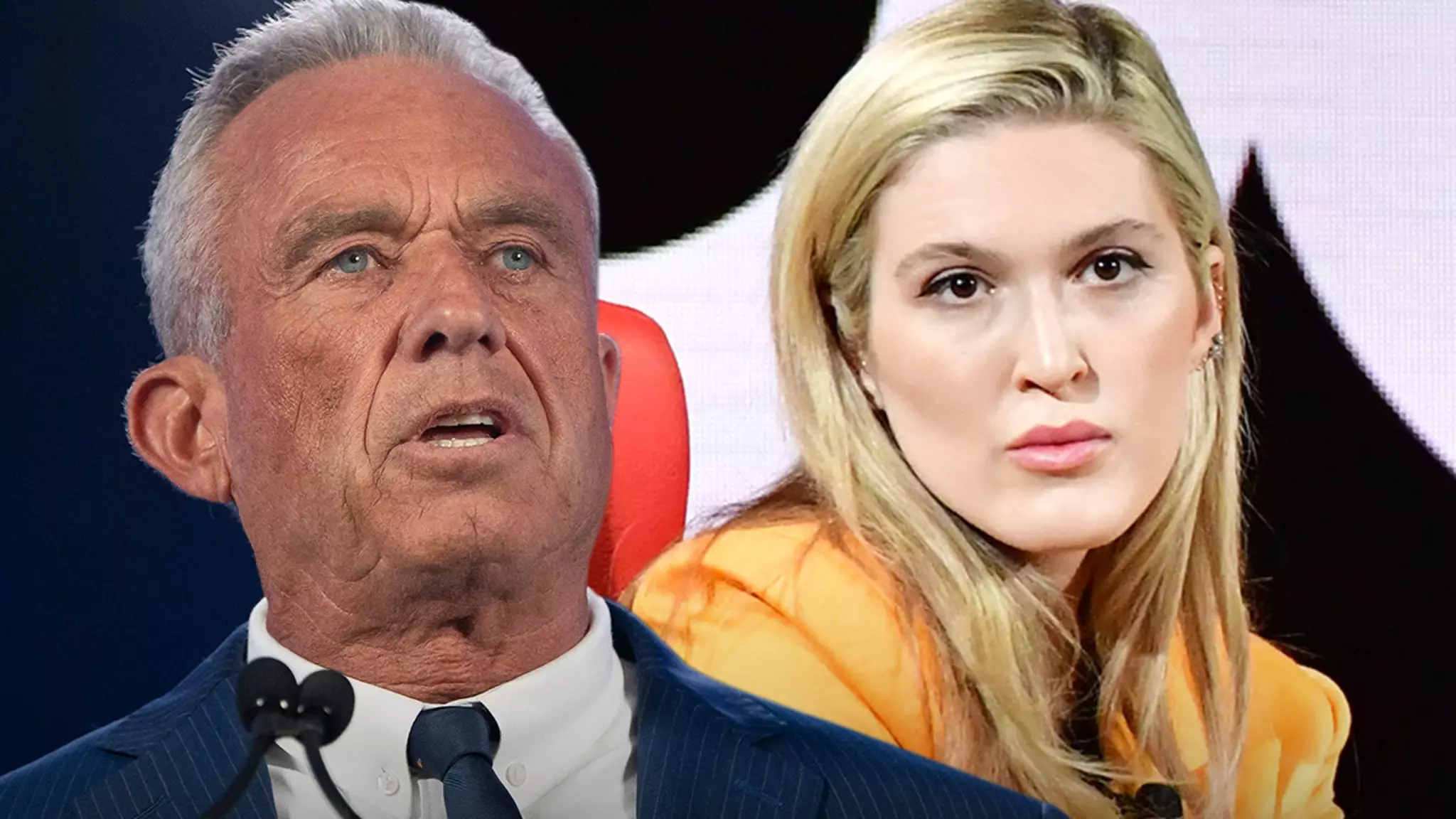The recent controversy surrounding Robert F. Kennedy Jr. and journalist Olivia Nuzzi raises critical questions about journalistic ethics and personal boundaries within the media landscape. Allegations suggest that the two engaged in inappropriate sexting after Nuzzi wrote a feature on Kennedy’s campaign for the 2024 presidency. This situation dives into the murky waters of professional integrity, especially when a journalist crosses lines that may compromise their impartiality.
Nuzzi, a prominent political reporter for New York Magazine, has found herself at the center of scrutiny after it was revealed that some of her communications with the subject of her reporting veered into personal territory. While acknowledging her missteps, she positioned her relationship with Kennedy as strictly non-physical, yet that distinction does little to alleviate the concerns about ethical journalism. The timing of her personal exchanges raises eyebrows, particularly as they coincided with her writing on Kennedy, an arrangement that could suggest a conflict of interest.
The ethical dilemmas posed in such situations are complex. If a journalist develops a close personal relationship with a subject, how does one ensure unbiased coverage? Nuzzi’s lack of disclosure to her editorial team only amplifies these concerns, making it evident that not just her personal integrity is at stake, but also the credibility of her publication.
After news of the sexting allegations surfaced, Nuzzi was placed on leave, a move that underscores the gravity of her actions. The New York Post’s reporting, relying on anonymous sources, insinuated that her relationship with the married Kennedy—reported to have been engaged at the time—was not just a professional entanglement, complicating the narrative further. This incident serves as a pivotal learning moment for journalists in understanding the potential repercussions of their personal lives intersecting with their professional responsibilities.
The problem extends beyond one journalist and one politician; it reflects a broader issue facing all media professionals navigating personal relationships with sources. The temptations that come with the substantial attention surrounding high-profile figures can easily lead to blurred lines, and it begs the question: at what point does personal interest compromise journalistic integrity?
As the conversation surrounding Nuzzi and Kennedy continues to unfold, the importance of maintaining clear professional boundaries becomes more apparent. Media organizations must prioritize robust ethics training for journalists, emphasizing the significance of transparency and the potential fallout of any missteps.
The incident involving Kennedy and Nuzzi serves as a stark reminder of the complexities of journalism in today’s hyper-connected world. While personal relationships can enrich our understanding of various subjects, they must be approached with caution and mindfulness. The integrity of journalism relies on a fine balance between personal and professional relationships, and safeguarding this boundary is essential for maintaining public trust in the media.


Leave a Reply